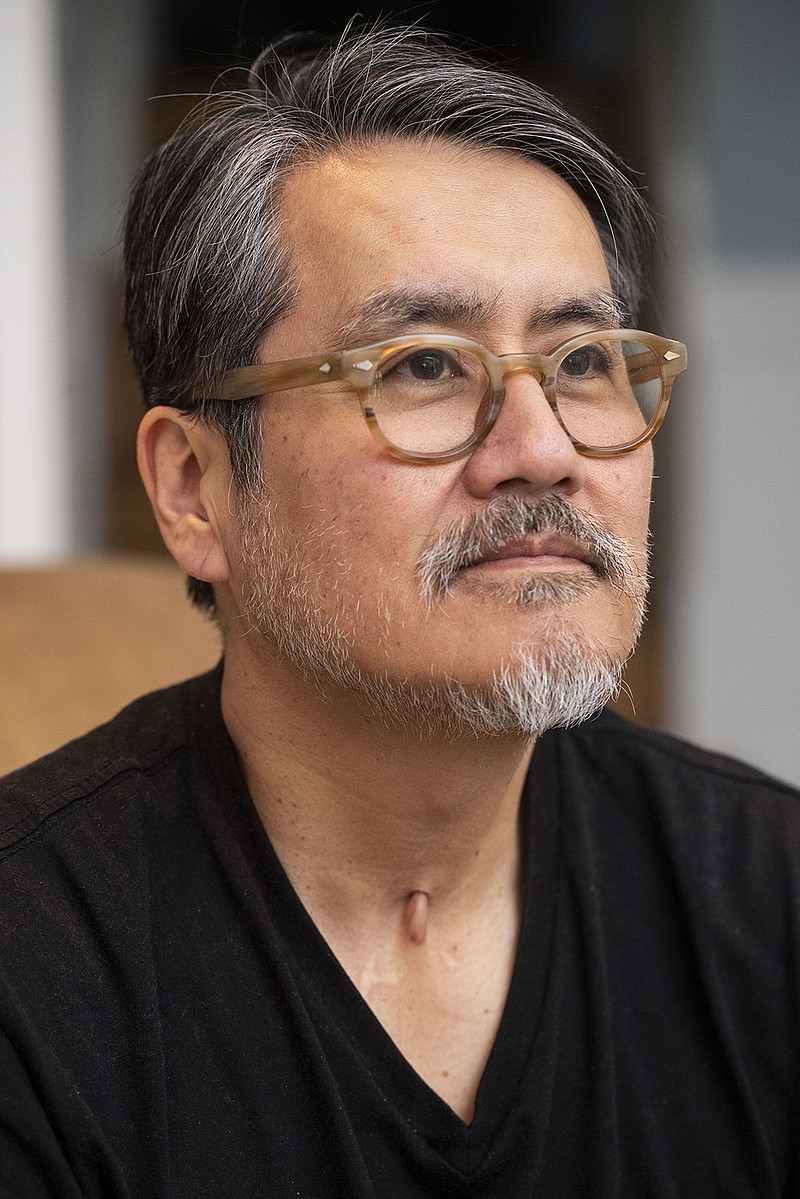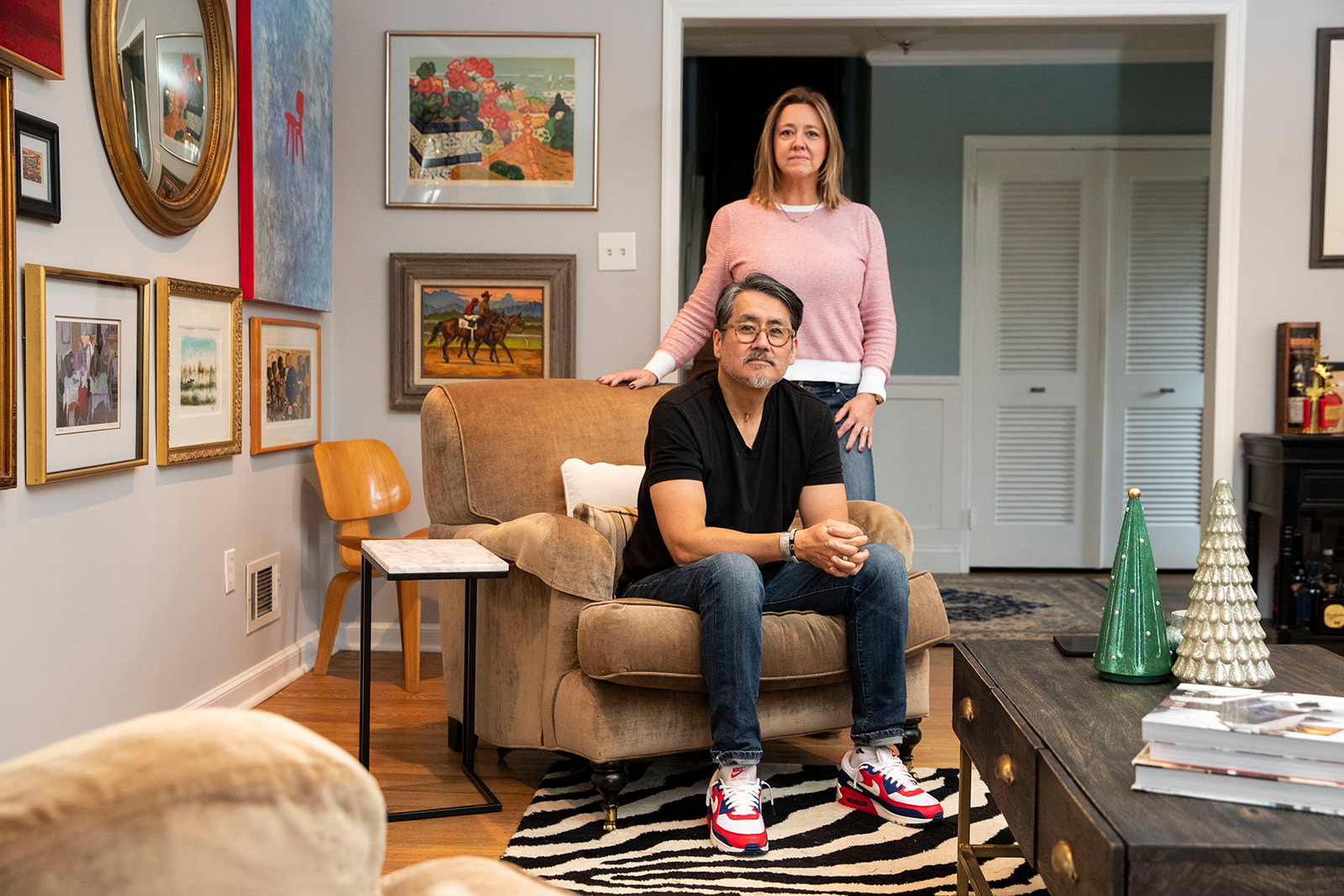PHILADELPHIA -- A ventilator breathed for Glenn Tabata through most of the first three months in 2021.
A COVID infection around Christmas 2020, before a vaccine was available to him, left the formerly healthy 55-year-old Wayne, Pennsylvania, man battling a constellation of medical complications. His recovery seemed so doubtful at one point that his wife, son, and daughter had set a date to remove him from the machines keeping him alive.
Tabata survived, but has struggled in recovery. He was so weakened by the infection that he had to retire early from his job as Ikea's graphic design manager in the United States. He still struggles to walk for long distances and has joint pain, difficulty concentrating, anxiety, and depression.
Lack of coordination among his doctors -- an American health system challenge for people with chronic conditions before and after COVID -- has further complicated his medical journey with these complications from a severe case of COVID.
This year, Tabata spent another three months just trying to find the right prescription for brain fog. It required call after call to his psychiatrist, who prescribed several medications, and his cardiologist, who had concerns that the wrong prescription could harm his heart, due to hypertension as a result of COVID.
"It is just trial and error," said Tabata. "It's like, hoping that you didn't miss anything or hoping you didn't forget to inform somebody that you're doing something."
Tabata is among an estimated 19 million Americans diagnosed with long-term COVID, a term used to describe a constellation of COVID symptoms that linger for three months or more, according to the Centers for Disease Control and Prevention. The experience can range from loss of smell or numbness in extremities to a debilitating chronic condition that can include respiratory, cardiovascular, and neurological problems all at once.
For some, it is fatal. The CDC in December reported that more than 3,500 Americans have died of long COVID between the beginning of the pandemic in 2020 through June.
In some of the most severe long COVID cases, people required lengthy and difficult hospitalizations. One University of Florida study found people whose COVID cases required hospitalization had significantly higher death rates within a year of their illness than people with mild cases of the virus.
Michael Harhay, a professor of epidemiology and medicine at the University of Pennsylvania who researches long COVID, called it a mass disability event.
"All these people were saved but went home with all these problems and no idea how to fix them," he said.
Even before COVID emerged, a small percentage of patients who had technically recovered from viral infections continued to experience lingering symptoms, said Benjamin Abramoff, a doctor of physical medicine and rehabilitation at Penn.
COVID exposed a far wider swath of the population to such suffering. Since the start of the pandemic, COVID has infected about 40 percent of the American adult population, according to the CDC, and about 416,000 people required hospitalization.
"It's not a new phenomenon, but certainly the scale seems to be much different," Abramoff said.
Researchers are still understanding what COVID does to the body. Arch Mainous, a family medicine physician at University of Florida, has authored several studies that found patients with severe COVID cases typically have high levels of inflammation, which can persist for months and contribute to higher death rates among those who were hospitalized.
Treating long COVID, he said, takes a coordinated approach across medical specialties. A doctor focused on any given condition may miss the full view.
"Somebody had COVID, now they could be at risk of ... you can go down the list of all these other things," Mainous said.
Being on a ventilator for long periods can create even more complications, including trouble swallowing, PTSD, delirium, and sleep problems, Harhay said. When Tabata awoke after his months on a ventilator, he was so weak even eating was difficult.
"I chewed gum for three days to strengthen my jaw muscles," he recalled.
Tabata didn't walk on his own for another three months. More than a year and a half later, he is still building up his stamina and lung capacity.
"I feel like I'm an 85- or 90-year-old man," he said.
Tabata said he also struggles with serious depression, which can be another after effect of a difficult hospitalization with a long period on a ventilator.
He is overwhelmed by how close he came to death.
"Why did I survive when everybody else didn't?" he often asks.
Along with his cardiologist and psychiatrist, Tabata also sees a pulmonologist and optometrist. All work for Main Line Health, but have offices in different locations and he often feels like a middle man coordinating his own care.
"We understand the challenges that care coordination can sometimes present for our patients," Main Line Health said in a statement.
The health system does have electronic medical records that have improved coordination among physicians, but some doctors affiliated with the health system may not have full access, a spokesperson said. Psychiatric records, meanwhile, are required to be kept separately from physical health records.
"Providers are still learning, even two years into this, the best way to manage some of these long COVID complications," said Penn's Abramoff.
Tabata spent about six months fighting to be well enough to return home. Some days, he misses the ease with which doctors there came together to coordinate his care. He credits each of his doctors with helping him survive and recover, but is strained by the pressure on himself and his wife, Ulrika, to act as intermediaries among the specialists.
"When I was in a hospital bed, all the doctors talked and came up with an ultimate plan for me," Tabata said. "Now that I'm out of the hospital they don't talk any more."


